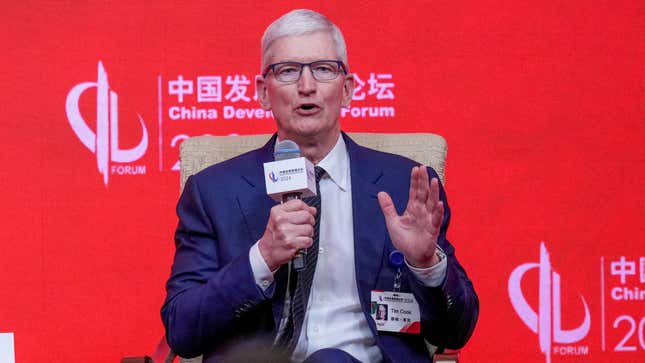
Apple removed several U.S.-based messaging apps from its App Store in China, including WhatsApp, Signal, and Threads, according to the Washington Post Friday. Officially, the apps were already banned in China but could still be accessed by users with a VPN.
The Chinese government reportedly blamed unspecified “national security” concerns for the ban on Western social media apps, the same reason U.S. politicians have given for a potential ban on TikTok, an app used by 170 million Americans. Apple didn’t immediately respond to questions emailed on Friday but told CNN the tech giant was just following local laws.
Advertisement
“We are obligated to follow the laws in the countries where we operate, even when we disagree,” an unnamed Apple spokesperson told CNN. “The Cyberspace Administration of China ordered the removal of these apps from the China storefront based on their national security concerns. These apps remain available for download on all other storefronts where they appear.”
Advertisement
Apple’s insistence that it’s just adhering to local laws is common and has been the backbone of virtually any rationalization heard from Silicon Valley to fold under pressure in a host of different international markets. Even Elon Musk, a supposed “free speech absolutist” has deployed the excuse whenever X has been told to censor content in countries with far-right authoritarian leaders.
Advertisement
But now that American politicians are on the cusp of banning TikTok if its parent company ByteDance doesn’t divorce itself from Chinese ownership, it will be interesting to see whether Silicon Valley plays the same card. Every country has different laws regarding speech, with many having no constitutional guarantee of free expression.
The U.S. is, of course, a country that ostensibly values freedom of speech and a potential TikTok ban will certainly test those values. But Apple will almost certainly be able to fall back on the excuse that it’s just following local laws. It’s both the truth and something Apple is more than willing to do as long as it still gets to make money hand over fist as the second most valuable company in the entire world.
Services Marketplace – Listings, Bookings & Reviews